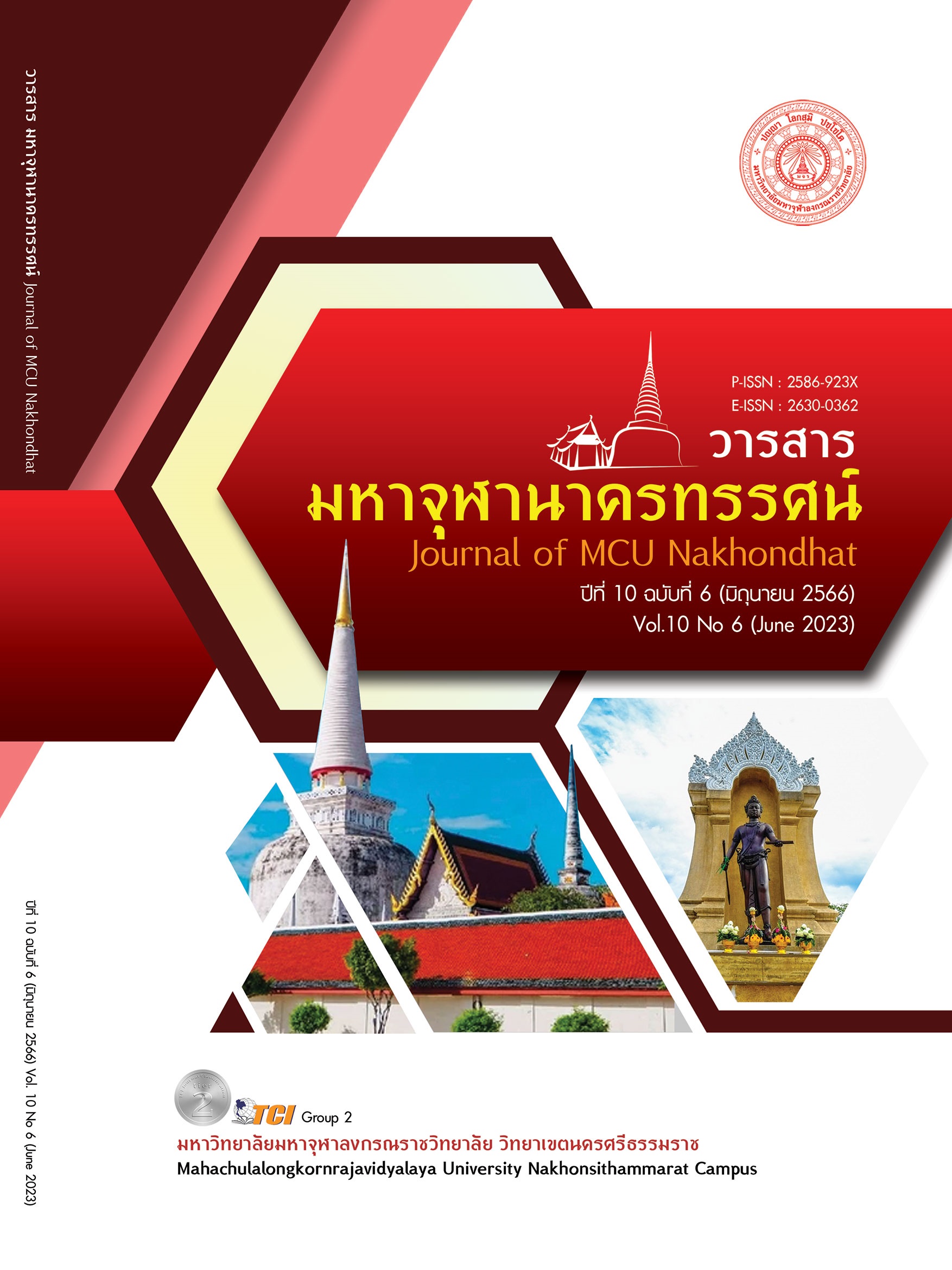LEGAL MEASURES FOR PROTECTING HOMEWORKERS: CASE STUDY OF DIGITALLY SKILLED WORKERS
Main Article Content
Abstract
This research article aims to study the protection of digital homeworkers In other words, the Protection of Domestic Workers Act B.E.2010 and compare it with international law of the International Labor Organization and foreign law. Using a qualitative research method and study and research mainly from documents According to the study, Thailand's laws still have limitations preventing them from protecting digitally skilled workers. But it does not provide protection for digitally skilled homeworkers. Currently, the nature of the occupation has developed more than industrial work, resulting in other types of work that are not protected by this law. In addition, there is no provision in determining the remuneration of digitally skilled workers in this law. Because jobs related to digital technology require a lot of work skills and professional expertise. There is also no definition of "compensation" in this law. May cause problems in the interpretation of the law. When the home worker has completed the work, how should he be compensated? The law in this regard is not sufficient to protect home workers in the case of digitally skilled workers. Better digital so that Thai laws have been developed to be up to date and to cover digitally skilled homeworkers
Article Details

This work is licensed under a Creative Commons Attribution-NonCommercial-NoDerivatives 4.0 International License.
References
เก่งกิจ กิติเรียงลาภ. (2560). AUTONOMIA ทุนนิยมความรับรู้ แรงงานอวัตถุ การเมืองของการปฏิวัติ. กรุงเทพมหานคร: ILLUMINATIONS.
ฐิติยา เนตรวงษ์. (2565). แรงงานดิจิทัลของพลเมืองแห่งศตวรรษที่ 21 เพื่อรองรับเทคโนโลยีพลิกผันบนชีวิตวิถีถัดไป. วารสารวิทยาการจัดการ มหาวิทยาลัยราชภัฏสกลนคร, 2(1), 1-15.
ณัชชา เมืองสง. (2556). การคุ้มครองผู้รับงานไปทำที่บ้าน. ใน วิทยานิพนธ์นิติศาสตร์มหาบัญฑิต สาขากฎหมายเอกชน. มหาวิทยาลัยธรรมศาสตร์.
ทศพล ทรรศนกุลพันธ์ และคณะ. (2562). การพัฒนาระบอบกฎหมายเพื่อลดความเหลื่อมล้ำกับกลุ่มแรงงานรับจ้างอิสระที่ได้รับผลกระทบจากความท้าทายในศตวรรษที่ 21. กรุงเทพมหานคร: สำนักงานกองทุนสนับสนุนการวิจัย (สกว).
ทีมข่าว TCIJ. (2564). คาดปี 2565 e-Commerce ไทยพุ่ง 4.7 แสนล้าน ยักษ์ใหญ่ยังขาดทุน-สรรพากรจ่อเก็บภาษี. เรียกใช้เมื่อ 3 กุมภาพันธ์ 2566 จาก https://www.tcijthai.com/news/2021/18/scoop/7828
นฤมล ทับจุมพล และคณะ. (2564). โครงการเศรษฐกิจดิจิทัลและงานในอนาคต ภายใต้แผนงานอาเซียนในกระแสแห่งความพลิกผัน : เศรษฐกิจดิจิทัลและผลกระทบต่อการจ้างงานในอนาคต (ASEAN in the Disruptive Era : Digital Economy and the Future of Work). ใน รายงานการวิจัย. สำนักงานการวิจัยแห่งชาติ.
บริษัท กลุ่มแอดวานซ์ รีเสิร์ช จำกัด. (2546). แนวทางการยกระดับมาตรฐานการคุ้มครองผู้รับงานไปทำที่บ้านสู่ความเป็นสากล. กรุงเทพมหานคร: บริษัท กลุ่มแอดวานซ์ รีเสิร์ช จำกัด.
พระราชบัญญัติคุ้มครองผู้รับงานไปทำที่บ้าน พ.ศ. 2553. (2553). ราชกิจจานุเบกษา เล่มที่ 127 ตอนที่ 70 ก หน้า 16 (9 มกราคม 2566).
ยุกติ มุกดาวิจิตร. (2560). ประชาสังคมไซเบอร์ในเวียดนามปัจจุบัน. วารสารสังคมวิทยามานุษยวิทยา, 36(2), 89-118.
อรรคณัฐ วันทนะสมบัติ และเกรียงศักดิ์ ธีระโกวิทขจร. (2561). แพลตฟอร์มอีโคโนมีและผลกระทบต่อแรงงานในภาคบริการ: กรณีศึกษาในประเทศไทย. กรุงเทพมหานคร: สถาบันแรงงานและเศรษฐกิจที่เป็นธรรม.
ELEADER. (2563). อาชีพยุคดิจิทัลที่ไม่ง้อปริญญา โอกาสใหม่ของ Digital Job. เรียกใช้เมื่อ 10 มกราคม 2566 จาก https://www.theeleader.com/digital-transformation/-digital-job/
Harvey, D. (2012). Rebel Cities: From the Right to the City to the Urban Revolution. London: Verso.
International Labour Organization. (2015). C177 - Home Work Convention, 1996 (No.177). Retrieved January 9 , 2023, from http://www.ilo.org/dyn/normlex/en/f?p=NORMLEXPUB:12100:0::NO::P12100_ILO_CODE:C177
U.S. Department of Labor Wage and Hour Division. (2012). Overtime Pay. Retrieved January 13, 2023, from http://www.dol.gov/whd/overtime_pay.htm


